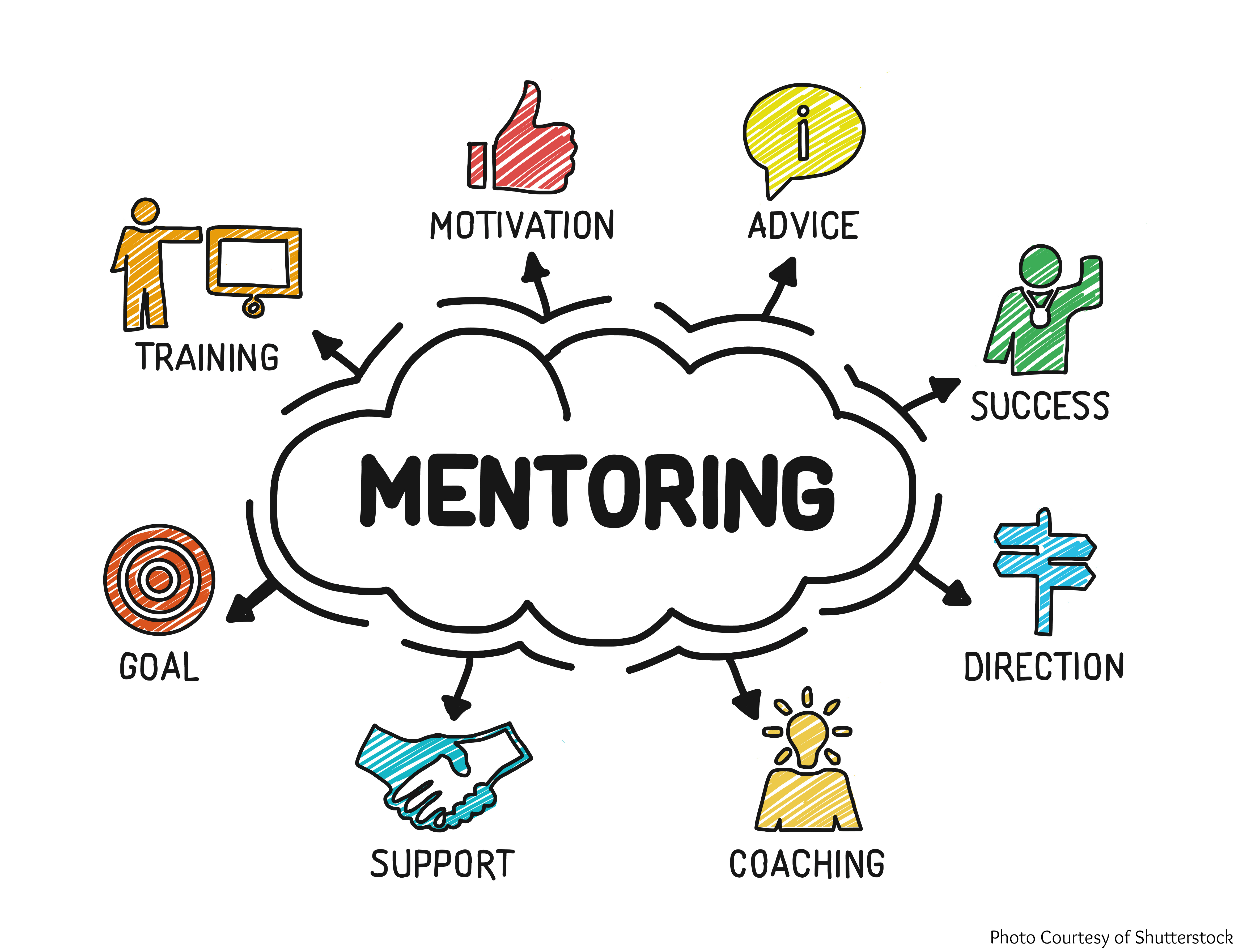
Mentoring can encompass all of these specific topics and details. (Photo via Shutterstock)
Mentors. We cherish them, we admire them, we search high and low for them. They act as a guiding light for our aspirations and always seem to have the right thing to say. The importance of having a mentor in any industry, but especially in the sports industry, is vital to sustained success. Our own Jake Kelfer described the importance of mentors and how they’ve helped him advance in his career.
There are a number of things that you can (and must) do to be considered a good mentee, but one thing that we hear about often is the phrase, “add value to the relationship.”
Add value to the relationship. Simple, right?
But what does this really mean? We know that relationships should be a two-way street, so there are a number of things you can do to add value to the relationship. You could introduce your connection to a potential business prospect, or introduce them to other like-minded individuals. You can provide feedback on their work. When the two colleagues are linear, or similar in status, it can be a bit easier to add value to these relationships. But how do you add value when, quite frankly, you seem to be the only benefactor of the relationship?
If you are fortunate enough to have a mentor who is successful, who knows all the big names, and seems to know all the answers, how do you add value to that relationship? Of course, this is an extreme example. No one knows everyone, no one knows all of the answers, but it can be a very real thing to have a mentor where you find yourself in position to take, and only take. As a mentee, what are some ways that you can add to the relationship?
Find a void and fill it.
As a mentee, you have the opportunity to fill a void for your mentor. There are ways and opportunities to do so. Your mentor could have some oversight over other employees. Mentoring may be an opportunity for mentors to sharpen leadership skills by providing counsel and guidance for employees and professionals who are technically under your leadership. As a mentee, you have the opportunity to provide your mentor some well-needed experience in guiding others, because there may be a time when this skill is a literal need for the mentor.
For Minor League Baseball’s Manager of Diversity and Inclusion Vince Pierson, that feedback is critical for the mentor just as much as it is for the mentee.
“As someone giving advice, I find value in knowing if the individual is taking my advice and how the outcome of the situation is. It’s not just about doing what someone says but also how the situation plays out.”
Your feedback can be directly used and implemented by the mentor. You can provide feedback about the leadership style of the mentor, or you can even share feedback about your experience with other leadership styles and the mentor can use this and implement key information for themselves.
When filling a void, you are establishing your value because you are doing something that very few individuals have taken the time to do.
One of my mentors has a strong passion for student-athletes, but he no longer works on a campus. One of his other mentees is a current student-athlete, so his mentee fills this void for him and acts as a key constituent for these types of conversations and that experience. Another word for this? Perspective. You can share your perspective, that can create value.
Recognize and Align Your Values

Your Core Values help guide you in your life and your work. They can establish direction and clarity, like a compass. (Image via The Cult Branding Company.)
You and your mentor should be aligned with a core value. As a mentee, if you can recognize (and align) with the values of your mentor, your alignment can help create a stronger relationship between you and your mentor. For example, if your mentor is an alum of your alma mater, and they happen to value giving back to the University, their value and interest in strengthening the alumni base is being channeled through you.
What is important to both you and your mentor? You can learn this through your interactions and intentional conversation. For Pierson, his energy and his consistent efforts when communicating with his mentors and co-workers allowed him to develop strong relationships.
“One thing people knew about me was that I brought energy to everything. If I had an hour and a half car ride with someone, best believe I was trying to have a conversation for that entire time. In those moments I ask about more than work and I really got to know people, and this can be the start of that relationship that takes you from mentee to friend.”
Aligning with your mentor can be tricky, and some may confuse this with agreeing with everything your mentor does. This is not the case. Alignment does not mean agreement or blind allegiance. For JP Abercrumbie, the Assistant AD for Life Skills and Community engagement for Mississippi State, she wants mentees to understand that alignment and agreement are different, and the difference is critical to understand.
“Understanding the perspective is key. Disagreeing is uncomfortable but there’s an added opportunity for growth there. Having a strong sense of self-worth and knowing your values to a point of not being willing to compromise them in times of adversity is what matters most. In agreeableness, I would fall in line and do as they do, or do as they say to do. In alignment, I can understand the vision, and act in matters that best bring that to light. Alignment is bigger than one individual person, relationship, or set of circumstances with successful alignment being based on my understanding of the environment, our culture & vision, and the resources available.”
Do the work. People are watching.
It seems very simple, but it would be inconsiderate to leave this off the list. But at times, this work gets lost. As a mentee, you usually are someone who is less established in the area, and who is in the position to receive more than you can give right now. The work and responsibility will more than likely fall on you to make the relationship work. How do you do this?
You do this by being prepared for conversations. Come to your mentor with a fresh perspective, come with thought-provoking questions, and come with infectious energy to get things done. Be clear and communicate what it is that you really need, and be intentional and purposeful in your interactions. You don’t have to speak with your mentor once a month for exactly an hour, there is no cookie-cutter way to communicate or build a relationship. Every situation is different, but effort is usually at the core of relationships, and that effort should be apparent and visible.
All of the fertilizer and plowing in the world will not save your crops if you don’t continue to water the garden. Your work and your ability to keep a consistent relationship will speak for itself, and it’s important to remember that people WILL watch you.

Managing relationships is just like watering a garden, and your mentor/mentee relationship is the same. Mentors will help you grow, as long as you tend to the garden. (Image via Beth Hyatt, Total Landscape Care.)
For Lamarr Pottinger, Director of Student-Athlete Development at Old Dominion University, he has a specific phrase he uses to make sure he does his part as a mentee, and his mentees do the same.
“Serve the credibility. When someone puts their name on you and agrees to mentor you, you’re now attached to them, so their name becomes your name and they put their credibility on the line for you when they speak of you to others. A mentee has to represent their mentor and be mindful of what and how they do moving forward.”
Our own Will Baggett speaks of this often, whose jersey are you wearing and how are you making them look?
Serving the credibility takes work. Following up, that takes work. Filling a void, that takes work. The common denominator for all of this is the work.
Our hope is that you can take these three tips and implement them into your relationships today, across any industry with any mentor, but you must be willing to put in the work. Make that call or send that email today. Let your mentor know that you’re ready to work. We think it’ll pay off in the end.


















